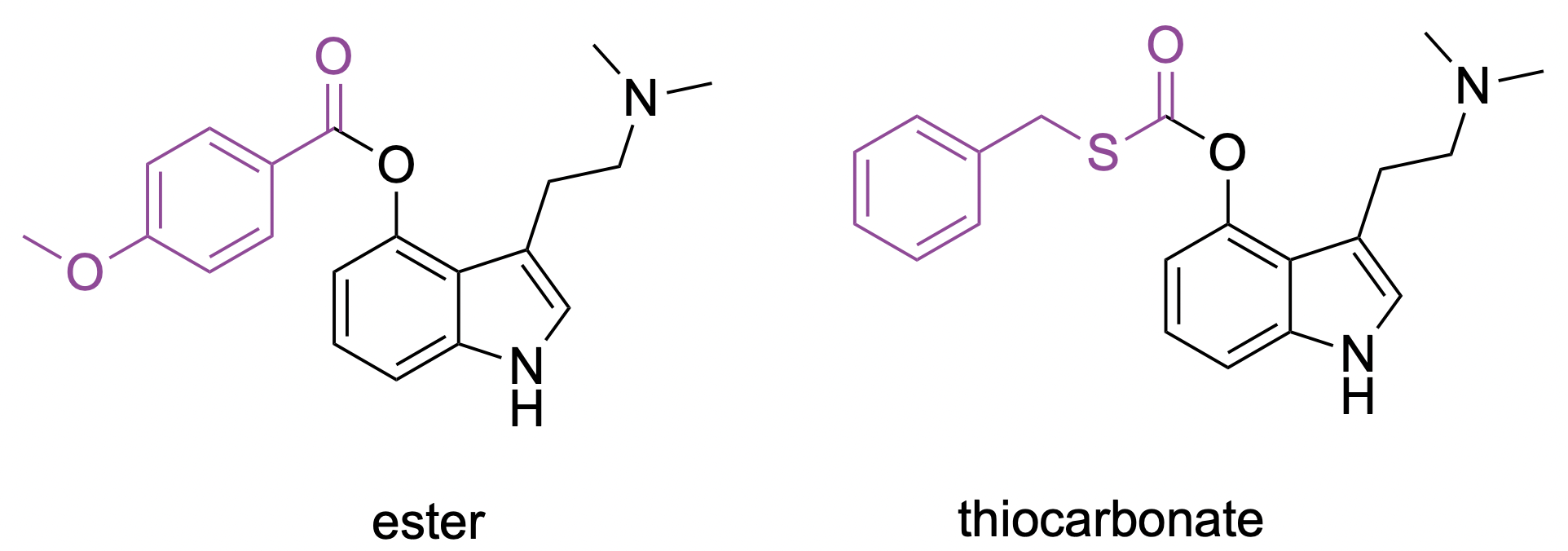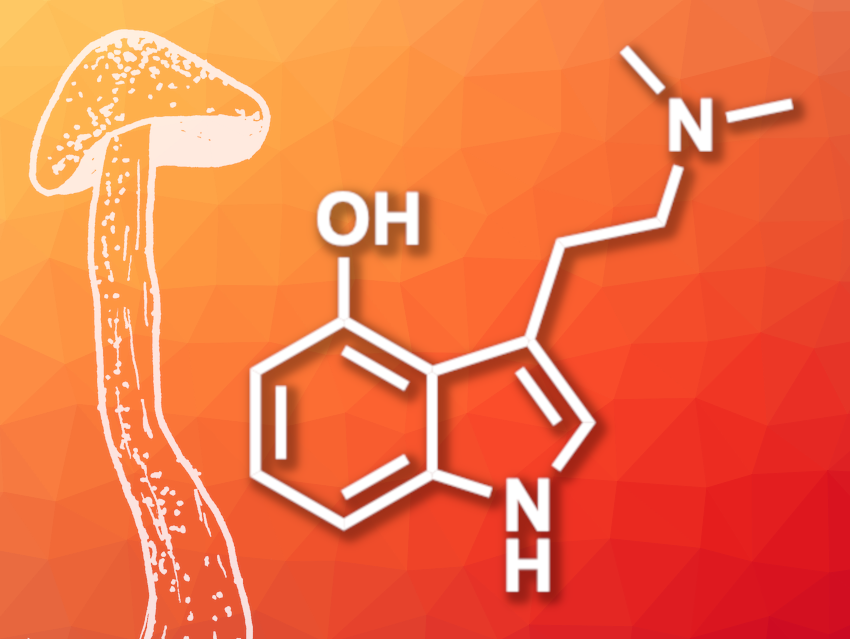Peter J. Facchini, University of Calgary and Enveric Biosciences, Calgary, Canada, and colleagues have developed new psilocin prodrugs as candidates for the treatment of, e.g., anxiety. Psilocin (pictured above) is the active compound that is created from the precursor psilocybin after ingesting hallucinogenic mushrooms. The team aimed to create prodrugs that have similar therapeutic benefits compared with psilocybin but show a reduced duration of psychedelic effects. The team introduced different functional groups, such as esters or a thiocarbonate units (examples pictured below), instead of the 4-hydroxy group in psilocin.

To determine if the synthesized prodrugs relieve anxiety, chronically stressed mice were put in a cage lined with wood-chip bedding that contains marbles. Mice that were administered one of the prodrugs buried fewer marbles than mice in a control group. This marble-burying test is regularly adopted as a model of anxiety and compulsive behaviors.
These results indicate that the compounds might also relieve anxiety in humans. Several of the prodrugs showed changed pharmacokinetic profiles compared with psilocybin. Thus, these candidate prodrugs could retain the benefits of psilocybin therapy while shortening the duration of psychedelic effects.
- Novel Psilocin Prodrugs with Altered Pharmacological Properties as Candidate Therapies for Treatment-Resistant Anxiety Disorders,
Sheetal A. Raithatha, Jillian M. Hagel, Kaveh Matinkhoo, Lisa Yu, David Press, Sarah G. Cook, Govinda Sharma, D. Dhananjaya, Glynnis Jensen, Jessica B. Lee, Charlie Cai, Jonathan Gallant, Jaideep Bains, Joseph E. Tucker, Peter J. Facchini,
J. Med. Chem. 2023.
https://doi.org/10.1021/acs.jmedchem.3c01225




